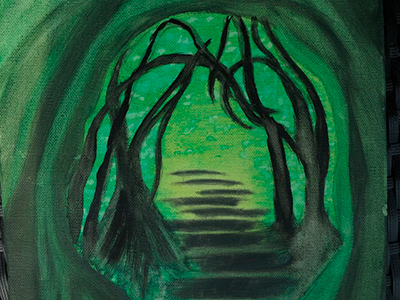The Überlegungen VII-XI. The beginning of a process that goes through three phases
Main Article Content
Abstract
This paper aims to situate the beginning of the spätphilosophie Heideggers around the awareness of an “error” confessed in the Überlegungen VII-XI. It is proposed to start from here to reconstruct the rupture with its previous stage and to suggest a classification of different stages of the spätphilosophie Heideggers, which is usually thought -unjustly, I would say- without distinctions or qualifications, in waht generally is designated as the philosophy of the Heidegger II.
Downloads
Article Details

This work is licensed under a Creative Commons Attribution-NonCommercial-NoDerivatives 4.0 International License.
Authors retain ownership of copyright and reproduction rights.
Authors may make other independent and additional contractual arrangements for non-exclusive distribution of the version of the article published in this journal (e.g., inclusion in an institutional repository or publication in a book) as long as they clearly indicate that the work was first published in this journal.
Authors are allowed and encouraged to publish their work on the Internet (e.g. on institutional or personal websites) after the review and publication process, as it may lead to productive exchanges and to a wider and faster dissemination of the published work.
References
A. Ciria, “Los ‘cuadernos negros’ de Heidegger”, Claves de razón práctica 247 (2016).
M. Gabriel, “Unvordenkliches Sein und Ereignis. Der Seinsbegriff beim späten Schelling und beim spoäten Heidegger”, en Hühn-Jantzen (ed.), Heideggers Schelling-Seminar (1927/28), Schellingiana 22/VIII (2011), 81-112, p. 82; p. 110.
F. P. Borbujo, Schelling. El sistema de la libertad, Herder, Barcelona, 2003, p. 698.
Fuhrmans, H., Schellings Philosophie der Weltalter. Schellings Philosophie in den jahren 1806- 1821. Zum Problem des Schllingschen Theismus, Suhrkamp, Düsserldorf, 1954, p. 301.
L. Tamayo, “El colapso de Heidegger de 1945-1946. Reflexiones acerca del autor y su obra”, l’école lacanienne de psychanalyse 3 (2001), pp. 161-184.
Safranski, Un maestro de Alemania. Heidegger y su tiempo, Tusquets, Barcelona, 1997, p. 276.
E. Faye, Heidegger et l’introduction du nazisme dans la philosophie, Albin Michel, París, 2005.
J. Quesada, «Martin Heidegger y la exigencia política del conocimiento: una raza dura», Isegoría, 43 (2010), 545-563, p. 546.
O. Pöggeler, “Den Führer führen. Heidegger und kein Ende”, Philosophische Rundschau 32 (1985), 26-67, 67.
A. Rojas, “La ciudad inhóspita promovida por Martin Heidegger”, Isegoría 47/julio-diciembre (2012), 499-517.
R. Rodríguez, “Naufragio, inhospitalidad, entrañas. María Zambrano ante Ortega y Heidegger”, Aurora 12 (2011), 41-55.
H-G. Gadamer, Hermenéutica de la modernidad. Conversaciones con Silvio Vietta, Trotta, Madrid, 2004, p. 41.
J-F. Mattéi, Heidegger. Lènigme d l’être, PUF, París, 2004.
A. Rojas, Das Potenzlose, Olms, Hildesheim, 2014.
Heidegger, Sein und Zeit, 1927, GA 2.
Heidegger, Einführung in die Metaphysik, 1935, GA 40.
Heidegger, Erläuterungen zu Hölderlins Dichtung, 1936-1968, GA 4.
Heidegger, Holzwege, 1935-1946, GA 5.
Heidegger, “Was ist Metaphysik?”, 1929, en Wegmarken, 1919-1958, GA, 9.
Heidegger, Hölderlins Hymnen “Germanien” und “Der Rhein”, 1934/5, GA 39.
Heidegger, Überlegungen I-VI, 19311-1938, GA 94.
Heidegger, Überlegungen VII-XI, 1938-39, GA 95.
Heidegger, Gelassenheit, 1955, Neske, Pfullingen, 1959.
Heidegger, Zur Sache des Denkens, 1962/4, Niemayer, Tübingen, 1976.
Schelling, Sämmtlichen Werken (SW), ed. August Schelling, Stuttgart y Augsburgo, 1856ss.
Schelling, Philosophische Untresuchungen über das Wesen der menschlichen Freiheit und die damit zusammenhängenden Gegenstände (=Freiheitsschrift), 1809. SW VII.
Schelling, Philosophie der Offenbarung, 1841/2. SW XIII.
Borbujo, F.P., Schelling. El sistema de la libertad, Herder, Barcelona, 2003.
Ciria, A., “Los ‘cuadernos negros’ de Heidegger”, Claves de razón práctica 247 (2016)
Faye, E., Heidegger et l’introduction du nazisme dans la philosophie, Albin Michel, París, 2005.
Fuhrmans, H., Schellings Philosophie der Weltalter. Schellings Philosophie in den jahren 1806-1821. Zum Problem des Schllingschen Theismus, Suhrkamp, Düsserldorf, 1954, p. 301.
Gabriel, M., “Unvordenkliches Sein und Ereignis. Der Seinsbegriff beim späten Schelling und beim späten Heidegger”, en Hühn-Jantzen (ed.), Heideggers Schelling-Seminar (1927/28), Schellingiana 22/VIII (2011), 81-112.
Gadamer, H-G., Hermenéutica de la modernidad. Conversaciones con Silvio Vietta, Trotta, Madrid, 2004, p. 41.
Mattéi, J-F., Heidegger. Lènigme d l’être, PUF, París, 2004.
Pöggeler, O., “Den Führer führen. Heidegger und kein Ende”, Philosophische Rundschau 32 (1985), 26-67.
Ortega y Gasset, J., El tema de nuestro tiempo, en Obras completas, 3.
Quesada, J., “Martin Heidegger y la exigencia política del conocimiento: una raza dura”, Isegoría, 43 (2010), 545-563.
Rodríguez, R., “Naufragio, inhospitalidad, entrañas. María Zambrano ante Ortega y Heidegger”, Aurora 12 (2011), 41-55. 93 DIFFERENZ. AÑO 5, NÚMERO 4: JULIO DE 2018. ISSN 2386-4877. pp. 79-93
Rojas, A., “La ciudad inhóspita promovida por Martin Heidegger”, Isegoría 47/juliodiciembre (2012), 499-517.
Rojas, A., Das Potenzlose, Olms, Hildesheim, 2014.
Rojas, A., La Cuadratura. La última palabra del pensamiento ontológico de Heidegger, SPICUM, UMA, Málaga, 2009.
Safranski, R., Un maestro de Alemania. Heidegger y su tiempo, Tusquets, Barcelona, 1997, p. 276.
Tamayo, L., “El colapso de Heidegger de 1945-1946. Reflexiones acerca del autor y su obra”, L’école lacanienne de psychanalyse 3 (2001), pp. 161-184.

